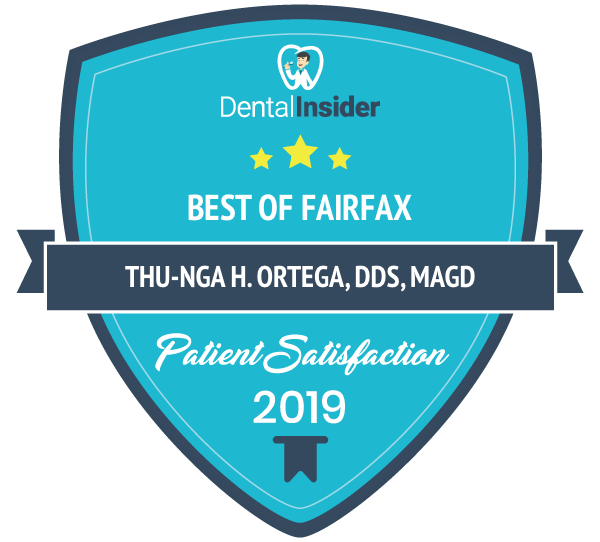Menu
Fairfax Medical Center
10721 Main Street, Suite 2200
(Back Building)
Fairfax, Virginia 22030
dentalcosmetix@outlook.com
Fairfax Medical Center
10721 Main Street, Suite 2200
(Back Building)
Fairfax, Virginia 22030
dentalcosmetix@outlook.com
 Surviving Cipro: Tips for Minimizing Gut Health Disruption
Surviving Cipro: Tips for Minimizing Gut Health Disruption
Ciprofloxacin, commonly known as Cipro, is a widely prescribed antibiotic that is effective in treating a variety of bacterial infections. However, what many people may not be aware of is the potential impact that Cipro can have on gut health. Research has shown that this medication can disrupt the delicate balance of bacteria in the gut, leading to a range of gastrointestinal symptoms and disturbances.
One of the primary ways in which Cipro disrupts gut health is by altering the natural microbiota, or the community of beneficial bacteria that reside in our digestive system. Cipro is known to have a broad spectrum of action, meaning that it not only targets the harmful bacteria causing the infection but also affects the beneficial bacteria. This can result in an overgrowth of opportunistic pathogens, such as yeast or harmful bacteria, which can lead to digestive issues like diarrhea, bloating, and abdominal pain.
In addition to the direct impact on the microbiota, Cipro has also been found to have a negative effect on the gut barrier function. The gut barrier acts as a protective barrier, selectively allowing nutrients into the body while keeping harmful substances out. Cipro can weaken this barrier, making the gut more susceptible to toxins and pathogens, further contributing to digestive disturbances. Understanding the specific impact that Cipro has on gut health is crucial in order to mitigate the potential disruptions and take proactive steps towards restoring and maintaining a healthy gut ecosystem.
The Role of Diet: Fueling Your Gut for Resilience and Recovery
-The Role of Diet: Fueling Your Gut for Resilience and Recovery-
A healthy diet plays a crucial role in fueling your gut for resilience and aiding in its recovery after taking Cipro. This powerful antibiotic can disrupt the balance of bacteria in your gut, leading to digestive issues and other unpleasant symptoms. Therefore, it is important to be mindful of what you eat to support your gut health during this time.
Opting for a diet rich in fiber is highly recommended. Fiber acts as a prebiotic, providing nourishment for beneficial bacteria in your gut. Incorporate foods like fruits, vegetables, whole grains, and legumes into your meals to ensure an adequate intake of fiber. Additionally, fermented foods such as yogurt, sauerkraut, and kimchi can also be beneficial. These foods contain live cultures of bacteria that can help replenish the gut with good bacteria.
Avoiding processed foods and added sugars is equally important. These foods can promote the growth of harmful bacteria in the gut and hinder the recovery process. Instead, choose whole, unprocessed foods that are nutrient-dense and support a healthy gut environment. Drinking plenty of water throughout the day is also essential to keep your digestive system hydrated and functioning optimally. By following a gut-friendly diet, you can promote resilience and aid in the recovery of your gut health after taking Cipro.
Supplementing Smartly: Boosting Your Gut's Defense Mechanism
Supplementing Smartly: Boosting Your Gut's Defense Mechanism
When it comes to protecting your gut health and mitigating the disruption caused by Cipro, supplementation can play a crucial role. Certain supplements can help bolster your gut's defense mechanism and promote healing. Probiotics, for instance, are beneficial bacteria that can help restore the natural balance of your gut microbiome. Look for high-quality probiotic supplements that contain a variety of strains to ensure maximum effectiveness. Additionally, prebiotics, which are fibers that nourish the probiotics, can also be beneficial. Consider incorporating prebiotic-rich foods like onions, garlic, bananas, and asparagus into your diet or explore prebiotic supplements.
Another supplement to consider is L-glutamine, an amino acid that can help heal the lining of the gut. It can potentially reduce gastrointestinal inflammation and enhance gut barrier function. Consult with a healthcare professional to determine the appropriate dosage for your needs. Additionally, omega-3 fatty acids, found in fish oil or flaxseed oil, have anti-inflammatory properties that can help reduce gut inflammation. These supplements should be taken under the guidance of a healthcare professional, as they may interact with certain medications or have individualized dosing requirements. By supplementing smartly, you can provide your gut with the necessary nutrients and support it needs to recover and maintain optimal health.
Nurturing the Microbiome: Cultivating a Thriving Gut Ecosystem
4) Nurturing the Microbiome: Cultivating a Thriving Gut Ecosystem
Cultivating a thriving gut ecosystem is crucial for maintaining gut health, especially after taking Cipro. The microbiome, which refers to the trillions of microorganisms living in our gut, plays a vital role in digestion, nutrient absorption, and overall health. To nurture your microbiome and promote its diversity, there are several strategies you can implement.
Firstly, incorporate a variety of fiber-rich foods into your diet. These include fruits, vegetables, whole grains, legumes, and nuts. Fiber acts as a prebiotic, providing nourishment for the beneficial bacteria in your gut. Aim to consume a wide range of fiber sources to support the growth of different bacterial strains.
In addition to fiber, fermented foods can also contribute to a healthy gut ecosystem. Foods like yogurt, sauerkraut, kimchi, and kefir contain probiotics, which are live bacteria that can colonize your gut and promote a healthy balance of microorganisms. Including these foods in your diet regularly can help restore and maintain a thriving gut ecosystem.
Moreover, avoiding excessive use of antibiotics unless absolutely necessary is essential in preserving the diversity of your gut microbiome. Antibiotics can disrupt the balance of bacteria in your gut, potentially leading to imbalances and digestive issues. If you do require antibiotics, discuss with your healthcare provider the possibility of taking a probiotic supplement simultaneously to help minimize disruption to your gut ecosystem.
With these strategies, you can nurture your microbiome and create a thriving gut ecosystem, which will contribute to your overall gut health and resilience after taking Cipro.
Taming the Side Effects: Managing Unpleasant Symptoms with Care
5) Taming the Side Effects: Managing Unpleasant Symptoms with Care
When taking Cipro, it is not uncommon to experience certain side effects that can disrupt your gut health. However, there are steps you can take to manage these symptoms with care. One of the most common side effects of Cipro is digestive upset, including diarrhea, nausea, and abdominal pain. To alleviate these symptoms, it is important to stay hydrated and avoid foods that can exacerbate the discomfort, such as spicy or greasy foods. Opting for gentle, easy-to-digest foods like toast, rice, and bananas can help soothe the digestive system and minimize further irritation. It is also advisable to eat smaller, more frequent meals rather than large, heavy ones to give your gut a chance to recover.
Additionally, probiotics can be beneficial in managing the side effects of Cipro. Probiotics are live bacteria and yeasts that are good for your digestive system. They can help restore the balance of bacteria in your gut and alleviate symptoms such as diarrhea. You can find probiotics in various forms, such as capsules or yogurt. However, it is important to consult with your healthcare provider before starting any new supplements, as they can provide guidance on the appropriate dosage and type of probiotics that would be most beneficial for you. Taking probiotics regularly during and after a course of Cipro can help prevent further disruptions to your gut health and support the recovery process.
Long-term Recovery: Strategies for Restoring and Maintaining Gut Health
6) Long-term Recovery: Strategies for Restoring and Maintaining Gut Health
In order to restore and maintain gut health after using Cipro, it is important to adopt certain strategies that promote healing and support the growth of beneficial gut bacteria. One key strategy is to incorporate a variety of fiber-rich foods into your diet. Fiber acts as a prebiotic, providing nourishment to the good bacteria in your gut. This can be achieved by consuming whole grains, fruits, vegetables, and legumes.
In addition to a fiber-rich diet, probiotic supplementation can be beneficial for restoring the balance of your gut microbiome. Probiotics are live microorganisms that can help replenish the good bacteria in your gut. It is important to choose a high-quality probiotic supplement that contains various strains of beneficial bacteria.
Furthermore, stress management plays a crucial role in gut health. Chronic stress can disrupt the balance of gut bacteria and impair digestion. Engaging in stress-reducing activities such as meditation, yoga, or regular exercise can help support a healthy gut.
Finally, it is essential to avoid any further exposure to antibiotics unless absolutely necessary. Antibiotics can disrupt the delicate balance of gut bacteria and hinder the recovery process. Consulting with a healthcare professional before taking any medications can help minimize the potential negative impact on your gut health.
By following these strategies, you can work towards restoring and maintaining a healthy gut even after the use of Cipro. Taking care of your gut health is vital for overall well-being and can greatly contribute to your long-term recovery.






